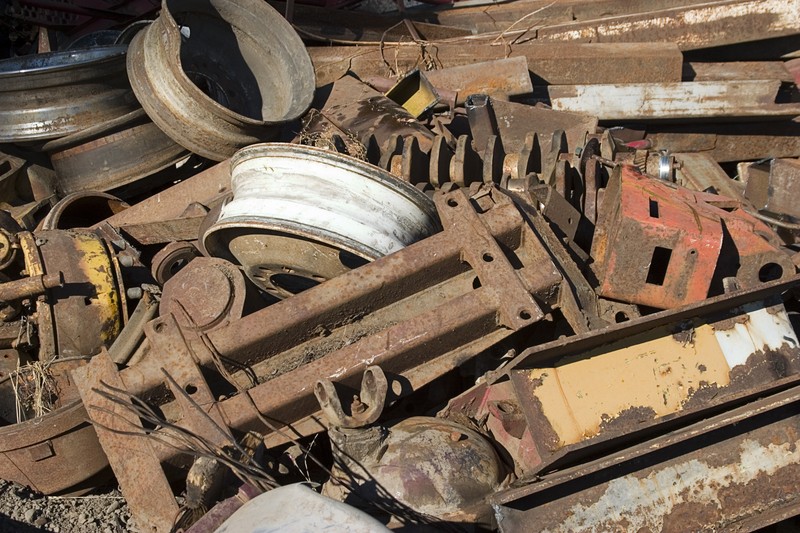Our grandparents knew that the most important thing you could do to survive an unpleasant situation was to have tools, supplies, and a plan to make them work for you. It's been that way since humans first bashed rocks to make sharper rocks and it will be that way when we're zipping around the galaxy. But for now, you should prepare for the worst by following the steps below.
1. Make a List!
To figure out what you need, you have to make a list. Grab a piece of paper and write down all of the systems you’re currently using that run on electricity and modern machinery. Here’s some common ones to get you thinking:
Milking machines
Automated sprinklers for the garden
Tractor for plowing the field
Rototillers for the garden
Irrigation systems
Lights
Food storage (fridge and freezer)
Laundry care
Cooking
Personal vehicles to get from place to place
Heating a greenhouse to grow food year round
You’ll probably have more to add. Most of us are very dependent on modern innovations in today’s life. Now that you have your list, it’s time to start thinking through SHTF scenarios.It's important to make a list because it allows you to think through how you will accomplish everything on that list if you run out of power, fuel, etc. Being prepared to keep the wheels turning is what sets the survivor apart from everyone else.
2. Stock Up on Printed Resources
There are plenty of books and details online that walk you through the systems you need. Now is the perfect time to stock up on printed research materials. After all, you won’t be able to do a whole lot of surfing the internet after the SHTF.
You won’t be able to learn everything in one sitting. That’s why having printed material is so beneficial. When you need it, you’ll be able to pull it out and learn on the go.
3. Develop a Repair or Reuse Mindset
When something breaks, it’s so easy to throw it away and buy another one. But, that attitude won’t get you very far in a crisis. Starting today, take time to learn about what’s broken.
If it’s something you were going to throw away anyways, you have nothing to lose. Examine the parts. See if you can pinpoint what failed. Then take it apart and see how everything fits together.
You might discover it was something simple that you can fix. If not, you gained valuable experience in troubleshooting and disassembly. Those skills will be crucial in the future.
Instead of throwing away things that break, see if you can come up with a more innovative solution. Can you pull the components and save them for an upcoming project? Can you hang onto the gears?
You might not have the space to save everything. That’s why it’s essential to have your list. What items will you use the most to keep your needed systems up and running?
4. Develop Your Creativity and Innovation
Instead of going out and buying something new, think creatively. Is there any other way to do what you need to do? Can you reuse something, or build a DIY model?
This will put your creative thinking skills to work. You’ll start thinking outside of the box. But just coming up with ideas isn’t enough. Innovation is the ability to put those skills to use to solve a problem.
5. Improve Your Mechanical Mind
Some people are naturally gifted in the area of mechanics. They’re tinkerers, always working on something. Others don’t have this natural ability. But, everyone can learn. If you’re not mechanically inclined, start asking questions. Watch what others do. Learn from them.
6. Carry Tools
You never know when you might need a screwdriver or a knife. If you aren’t currently carrying a multi-tool, start.
Put a basic repair kit in your car, and know how to use the tools in it. If you leave your vehicle in an emergency, you’ll be able to grab a couple of tools. Those may make the difference between you making it home or not.
saws
7. Invest in Hand Tools
You’ll also want to build a solid supply of hand tools around your homestead. Think beyond the screwdriver and hammer. How would you cut firewood without a chainsaw? Pick up a hand saw that you can use if you need to.
8. Learn the Basics
While you can’t learn everything there is to know, you can learn a little about a lot of things. Here are some things to study that’ll help you be better prepared:
Off-grid electricity
Alternative ways to store food
Basics of physics
First aid basics
Every bit of knowledge and hands on mechanical experience you gain will help make you stronger in the future.
Having a lot of stored knowledge is excellent advice, and there isn't much that can replace it. After all, a tool is only as good as the person who wields it. You should aim to practice as many skills as possible before SHTF, such as gardening, performing your own vehicle repairs, animal husbandry, and woodworking. If you can't practice these, though, you should at the very least stock up on an impressive library of books with these skills. And don't cart that pile of scrap out to the dump, you may need it…
For more excellent advice, go to Survivopedia and start practicing today.

At mechanic prices and con game repairs you should be knowledgeable today! Esp. Women